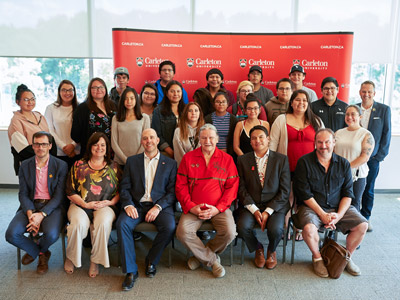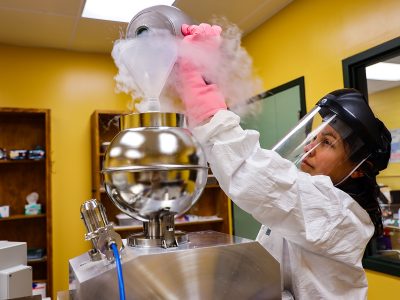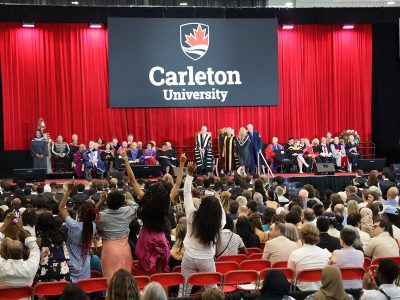By Dan Rubinstein
Photos by Chris Roussakis
When Stuart Hickox was deciding where to set up the Canadian headquarters of ONE Campaign, an international advocacy organization dedicated to ending extreme poverty and preventable disease, the Carleton alumnus thought his alma mater could be a good fit.
A campus office would help connect the grassroots organization to thousands of students who could be engaged in the fight for equality and justice, and to faculty whose research could help inform ONE’s efforts, which are concentrated in Africa but extend worldwide. A home at Carleton could also serve as a step towards a presence at universities and colleges across Canada.
While attending a post-federal election forum hosted by the Norman Paterson School of International Affairs in the Loeb Building, Hickox was enchanted by the views of the Rideau River. A researcher at the event mentioned 1125@Carleton, the university’s social innovation lab, which happens to be next door to Loeb in the Human Computer Interaction Building.
Hickox arranged to go see the collaborative two-storey space, met 1125@Carleton’s Managing Director Cathy Malcolm Edwards, and a couple weeks later started moving in.
“It felt immediately like the right place to be,” says Hickox, the ONE Campaign’s Canada director, who graduated with a bachelor’s degree in political science and history in 1992. “Our organization is all about community, and this campus is an important community hub, with a sense of openness and a commitment to innovation.
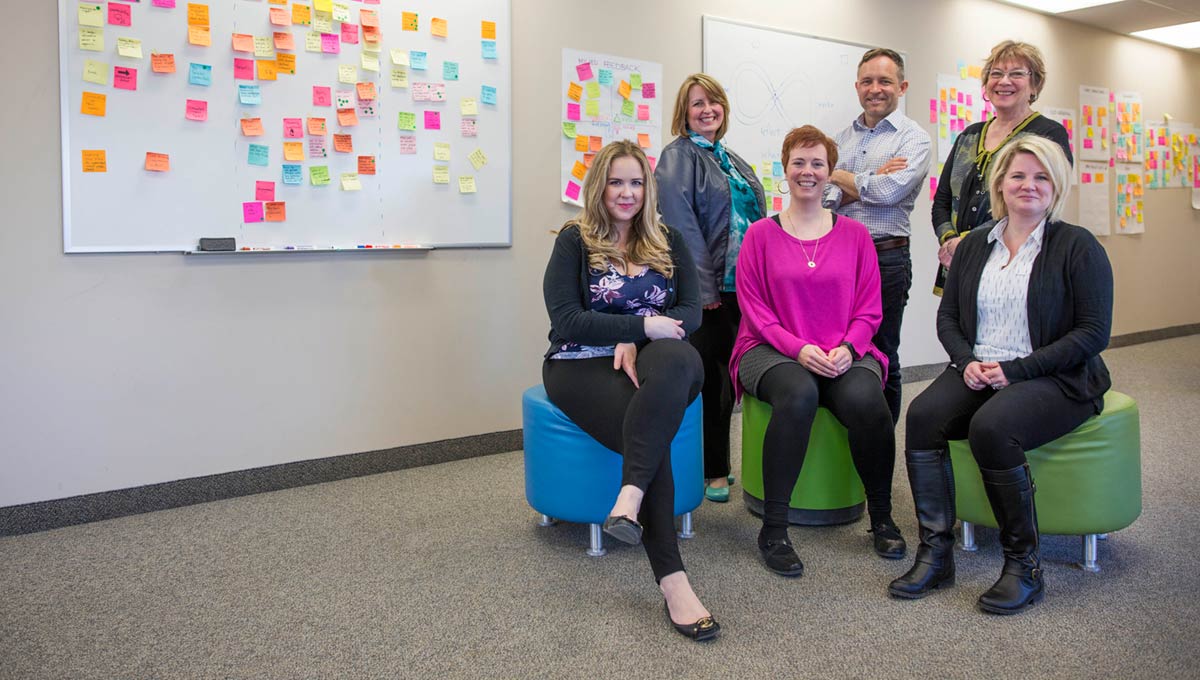
“Carleton is a testing ground for The ONE Campaign for the whole country. We’re going to try new things here, and learn from our mistakes. Social entrepreneurship and community-building require experimentation.”
ONE, which was co-founded by U2’s Bono in 2004, has teams based in London, Johannesburg, Brussels, Berlin, Paris, New York and Washington, D.C.
Its staff and volunteers don’t dig wells or build schools — they push governments to invest more in overseas development assistance, so organizations that do fieldwork have the resources they need. They also don’t fundraise from the public. “We want your voice,” says Hickox, “not your money.”
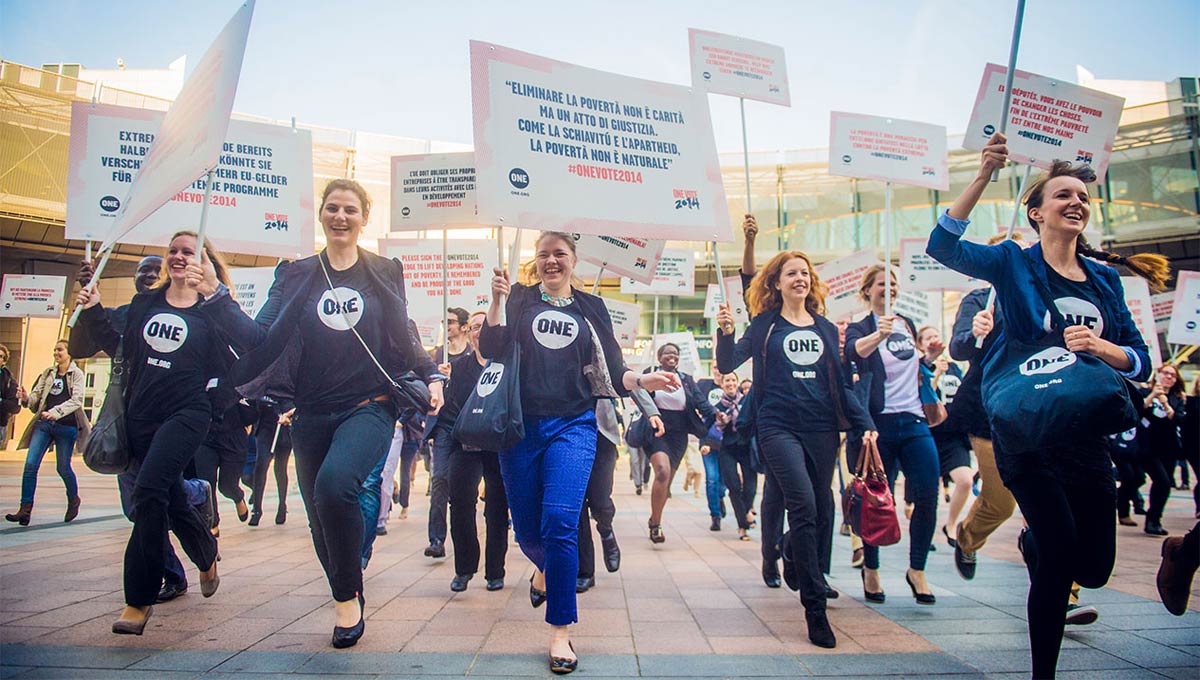
In 2014, over 100 ONE Youth Ambassadors from around Europe came together in Brussels, Belgium, for a special “ONE Summit” to persuade newly-elected Members of the European Parliament to commit to the fight against extreme poverty | Photo: ONE/Joris Bulcken
According to ONE, which has more than seven million members worldwide and over 177,000 in Canada, the organization and its partners have played an important role in persuading governments to support effective programs and policies that are making a measurable difference in fighting extreme poverty and disease.
“As a result of those programs, today nearly four million Africans have access to life-saving AIDS medication, up from only 50,000 people in 2002. Malaria deaths have been cut in half in countries across Africa in less than two years, and 46.5 million more children are now going to school.”
Hickox became ONE Canada’s first director in April 2015. Until then, teams from the United States would periodically cross the border to engage Canadians and do advocacy work.
With a presence in this country — Vicki Penney has come on board as director of operations and two more staff will be hired this year — ONE Canada can more effectively continue its effort to convince the Trudeau government to support “strong funding for global nutrition initiatives, global health efforts, and other programs that fight extreme poverty and combat preventable disease.”
Since 1970, the international consensus target for spending on foreign aid has been 0.7 per cent of gross national income (GNI). Canada has invested as much as .35 per cent, but currently spends about 0.25 per cent, says Hickox. Overseas development assistance was not cut in the last federal budget for the first time in five years, which he sees as a positive trend.
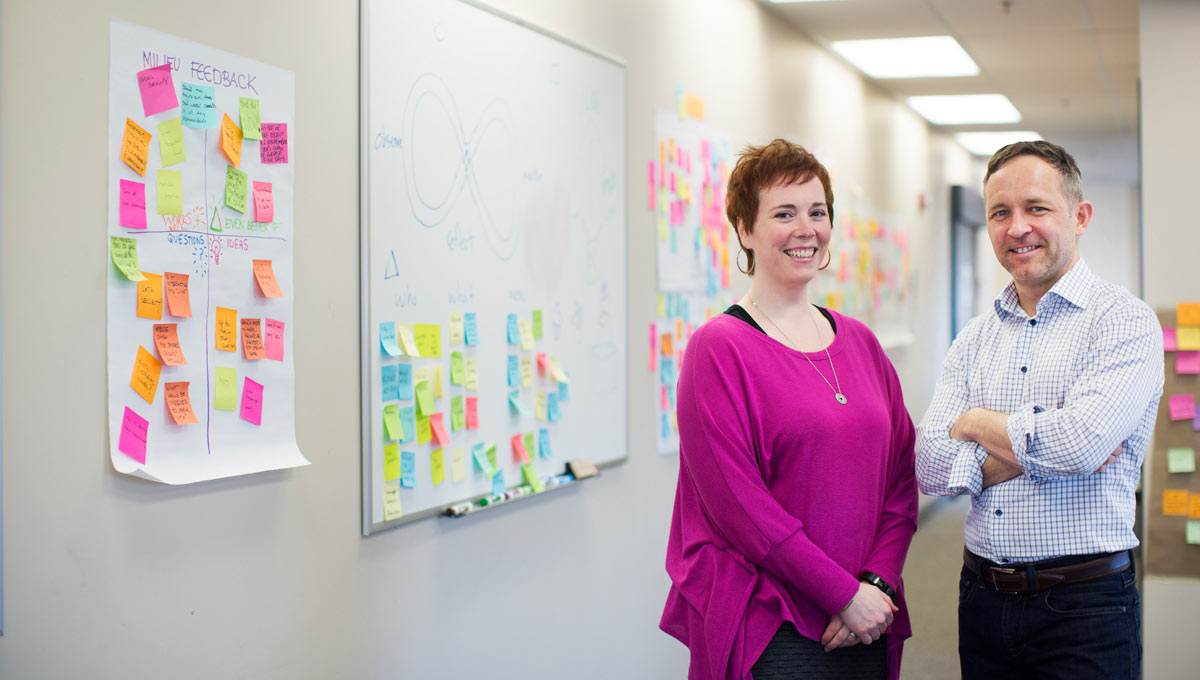
“Our number one message right now, which we want our members to echo, is to get the Trudeau government to explain what ‘Canada is back’ means — something ambitious and measurable. We want the new government to walk the talk, and we will mobilize Canadians of all backgrounds behind this.”
Hickox is a natural fit for this role. A former academic journal editor and writing director at a marketing agency, he started and spent 10 years running the non-profit One Change foundation, whose Project Porchlight campaign convinced millions of North Americans to replace incandescent light bulbs with more efficient compact fluorescent bulbs — a simple step designed to spark more complex sustainable actions and a much deeper environmental consciousness.
“People weren’t excited about the light bulb itself,” he says. “They were excited about the chance to do something positive, to get together around shared values and feel a sense of community and shared purpose.”
One Change had grown into a thriving organization with 25 staff in Ottawa and 240 field workers throughout the continent before Hickox closed it down in 2014. He had grown tired of working in energy efficiency and wanted to find a more meaningful way to change the world. He figured he’d have to get a normal job again, and then he learned about an opportunity with the ONE Campaign (which has no connection to One Change).
“Engaging people to convert anxiety into action is what makes me tick,” he says. “People have a great awareness of global problems, but often feel powerless to act. We welcome them to a community and provide ways to stimulate real change.”
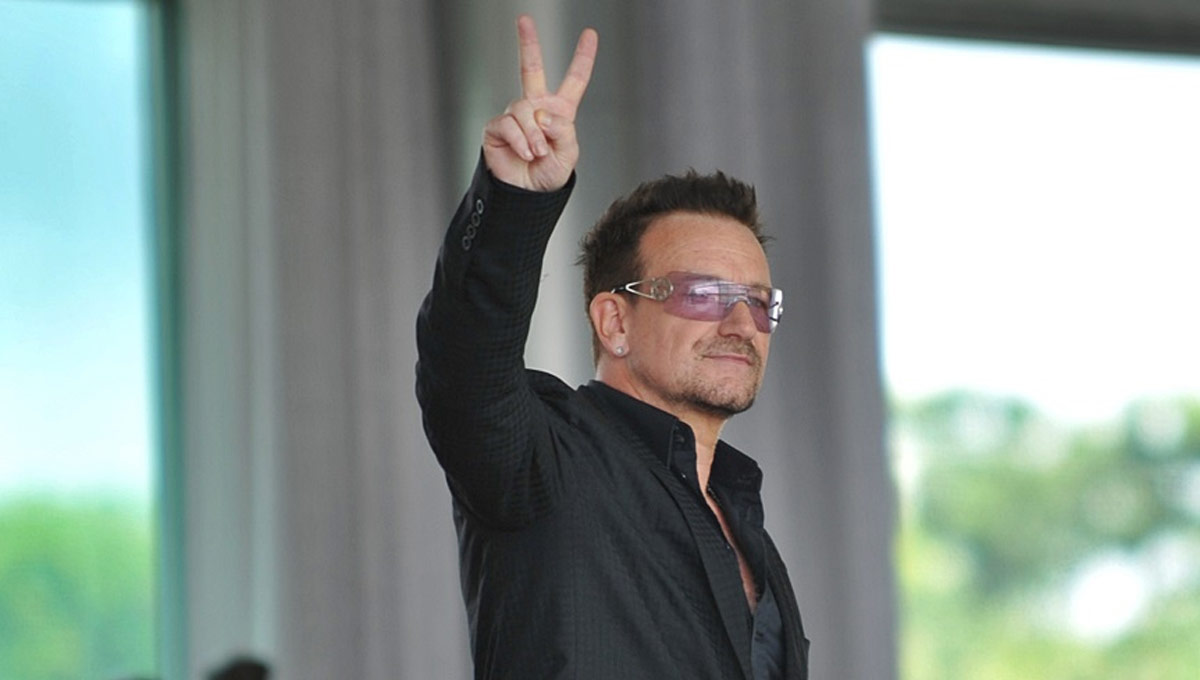
ONE founder and U2 lead singer Bono in Brazil, 2011. (CC-BY, Agência Brasil)
“The ONE Campaign’s priorities fit 1125@Carleton’s mandate to connect the university with the external community in ways that help make the world more sustainable and just,” says Malcolm Edwards. “One of the main reasons universities exist is to improve the world we live in.”
1125@Carleton is already working with IBM Canada on CoLab10X, a series of interdisciplinary workshops that use design thinking to address business or community issues.
It has also partnered with the RECODE program (offered by the J.W. McConnell Family Foundation), Impact Hub Ottawa and the Carleton University Students’ Association, to offer Born Social fellowships, a program that provides 11 students with an opportunity to participate in a “12-month, hands-on learning experience that applies their skill development directly to civic issues facing our community, provides local and global connections, as well as professional field experiences.”
“We believe in the ability of youth to bring about positive change,” says Malcolm Edwards. “There’s no better potential.”
Hickox shares this optimism. “The biggest challenge we have right now in society is not climate change or poverty,” he says “It’s disengagement. We’re more isolated and disconnected than ever before.
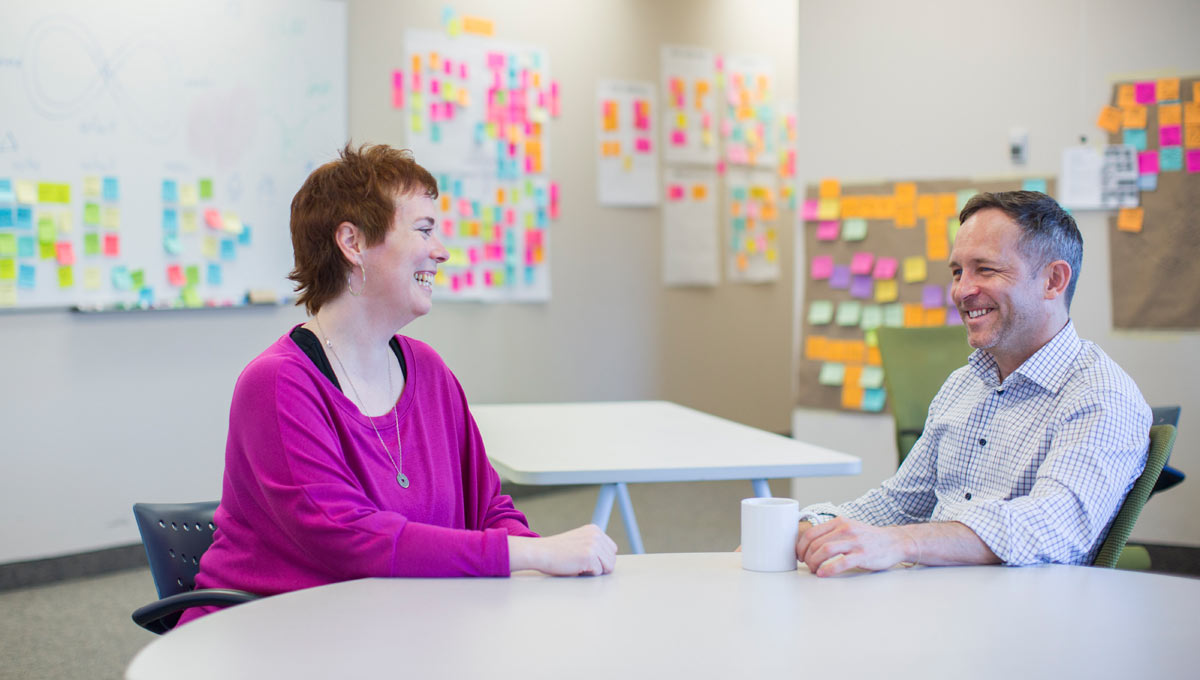
“We have to create spaces and opportunities for people to interact, not knowing what’s going to happen, but trusting that solutions will emerge.”
In addition to putting pressure on the federal government through online campaigns and other grassroots advocacy, Hickox plans to hold more events and on-the-ground actions to bring people together. And though he hasn’t had a chance to knock on doors around Carleton, he’s hoping to work with faculty, staff and students whose interests and expertise mesh with ONE’s goals.
“Please, get in touch,” he says. “Don’t wait for me to call. We seek ideas and partners.”
He and Malcolm Edwards have one idea that’s simmering on the backburner.
Bono came to Ottawa in 2015 to meet with the prime minister, opposition leaders and NGOs, and hinted that he may return in 2017, the country’s 150th birthday, to encourage more commitment to foreign aid.
A visit to the national headquarters of the organization he co-founded — and a peek at the Rideau River from the Carleton campus — would make for a “Beautiful Day.”
Tuesday, April 12, 2016 in Alumni, Community, International
Share: Twitter, Facebook

